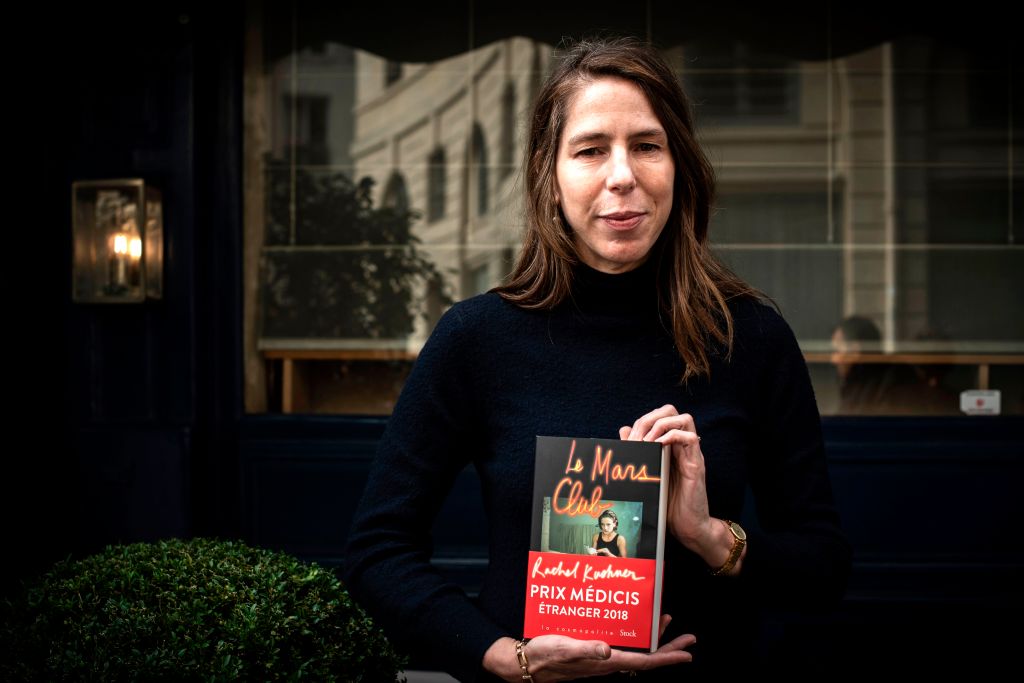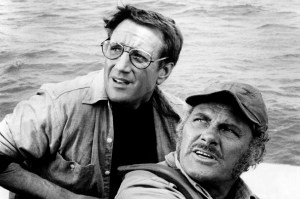Rachel Kushner’s ambitious, intelligent and gripping latest novel, Creation Lake, concerns the eternal human capacity for delusion, while wondering whether utopian ideals can ever be realized without serious compromise. And it manages all this within the form of an expertly slick thriller, set against the backdrop of contemporary rural France, its history, politics and class system, all carefully woven in alongside an account of the rise and fall of the Neanderthals.
Sadie, the first-person narrator, used to work as an undercover intelligence agent in the United States; she was discharged after entrapping a young man who was engaged in animal activism. Kushner pulls off a remarkable feat in engaging our sympathies: despite the fact that Sadie appears to be absolutely unconcerned by, and almost entirely disconnected from, the devastating effect of this on the boy’s life (he was imprisoned), the reader is compelled by her urgent, wry and satirical voice, rendering us absolutely intent on unpicking the deceits that she practices on herself and those around her. So used is Sadie to cloaking her motives and identity that she seems almost incapable of deeply held emotion, indeed nearly sociopathic. She also drinks and drives, shoplifts food and sometimes digresses into hilarious asides on punctuation. What’s not to like?
Now working as a freelance operative, and bankrolled by shadowy men in suits, Sadie’s job is to infiltrate the Moulinards, an organization of idealists who “lived communally and planted carrots and had babies.” They’re opposed to plans for development in the region and are suspected of sabotage. Their leaders, Bruno and Pascal, are Sadie’s targets.
Infiltrating the group requires serious planning on Sadie’s part: she identifies a filmmaker called Lucien, an haut bourgeois who is friendly with Pascal, and seduces him over several weeks. He is a typical adherent of the kind of socialism beloved of the upper classes, clinging to his money, culture and breeding whilst professing great ideals. But is his hypocrisy any different from Sadie’s? Kushner posits the question whether anyone can ever be sincere. The relationship points toward another of the novel’s themes, which is the subjugation of women. Sadie is repelled by Lucien, though she must submit to his sexual advances and pretend to enjoy them, something which has been a regrettable commonplace throughout the centuries.
Kushner also deploys and undercuts a sexist trope in depicting Sadie, who is an accomplished plotter and manipulator, and uses her sexual attractiveness to lure Lucien into her bed. Eventually she arranges things so that she is invited to stay in Lucien’s family manor house. Here, with Lucien away filming, and in total opposition to feminine ideals, she lets the trash pile up and swigs from beer bottles, while intercepting Bruno’s emails and posing as a translator who will help the Moulinards with a book.
Bruno has become a sage figure, retreating into a cave and therefore into the womb of the world, where he communes with history in the darkness, claiming to be able to hear the voices of those who have died there, reaching back through layers of history: Underground is where “all planes of time” are on “a single plane.” It is an inversion of Plato’s cave; instead of seeking truth beyond the entrance, Bruno is happy with the shadows within. Bruno’s emails to the Moulinards concern the Neanderthals, whom popular culture represents as boneheaded; they were instead, he asserts, sophisticated and imaginative. Bruno idealizes them, presenting them as an alternative to our rapacious Homo sapiens selves, whom he dubs Homo tardissimus, the last to arrive. Bruno himself is a prime example of an idealist failing to live up to what he preaches. Though he lives in the cave, he’s perfectly happy to pop across every evening to his daughter’s house, where she cooks him a good stew, and from where he sends his missives using the latest technology. His daughter is exhausted and concerned with the price of gas; he fantasizes and fills his belly.
This underlines the feminist nature of the novel, and the way that women’s unpaid work allows men to dream. Among the Moulinards, the women are reduced to serving coffee and looking after the babies. It’s the men (mostly well-heeled university graduates, naturally) who work on the translation with Sadie, and who strategize and politick. This, apparently, as one of the men notes drily, always happens in communes.
The illusory utopia also encourages what another age would term “loose morals”: an eleven-year-old who impregnated one of his teachers is punished by being expelled from the commune (some punishment, as he ranges freely). The baby is given up for adoption, and the teacher remains unpunished. In one evocative and mildly disturbing scene Sadie watches the young teen father playing with his child, the foster parents looking on, and envies their connection as something she’ll never have. It’s complex and poignant: the boy is corrupt yet also innocent; he has a sincerity of purpose and being which is entirely beyond Sadie.
The Moulinards seem to accept Sadie into their lives. I say seem, because one or two of them might also be playing her at her own game. At least they’re deeply suspicious of her, particularly the hardened American called Burdmoose. Sadie isn’t just there to figure out the Moulinards; it turns out she has the darker purpose of arranging the assassination of a French politician during a farmers’ protest. Soon we start to wonder about Sadie’s reliability. Can someone with such a haphazard approach to life be entirely truthful? Some of her actions in executing her mission seem both clumsy and inept, and we begin to understand why she was let go by the American agency.
She also becomes inescapably drawn to the sage Bruno as she immerses herself more and more in his ramblings. They share similar ideas: he that excavating the past will result in truth; she that everyone has a true core, which she terms “salt,” and it is this that she searches for in others and in herself. In the background is the minatory story of Mark Cutler, a British agent who infiltrated a leftist group and ended up becoming one of them. He bombed an army recruitment center, and then, in an ironic move typical of Kushner, sued the police because they didn’t protect him from being indoctrinated by the far left. Sadie herself seems on the edge, her hard outer shell in danger of being smashed, leaving her irretrievably exposed.
Creation Lake is a book about how humans deal with what is deemed to be Other, as exemplified in a strand of French history of which I was entirely unaware. The Cagots were a reviled and ostracized minority group in western France and northern Spain, repressed from the Middle Ages into the twentieth century. They “were forbidden to keep farm animals. They could not enter taverns, or drink from communal cisterns, or wash in communal lavoirs, or shop in village markets. They were believed to live on black bread, roots, rodents and creek water… It was not a crime to murder one of them.” This kind of scapegoating treatment, Kushner suggests, has never gone away, as evidenced by Lucien’s grand relatives, who are snobbish and prejudiced about a working-class man who marries into their family. It’s also horribly and tragically redoubled in Bruno’s own life. A half-Jewish boy, he was packed off to the country to live with an aunt during the Nazi occupation of France, where he endured terrible hardships. His brother, sent to a different place, ended up dead in a concentration camp. It is no sur- prise that Bruno ends up empathizing with outcasts.
Bruno believes that the Cagots were the descendants of the Neanderthals, and their uprising — sparked by the slaughter of a horse belonging to one of them — against their oppressors becomes something of a totem for him. Whether the Moulinards themselves have such revolutionary tendencies, or are silly hippies who like making jam, is one of the many things that Kushner leaves deliciously ambiguous.
Kushner is excellent at creating scenes which brim with tension, often veering into almost farcical comedy. Sadie, herself an outcast of a kind, is also an agent of chaos, causing entropy wherever she goes. But she’s also searching for the truth of her being. The novel moves forward with exquisite pacing toward an unexpected climax involving the politician, a grandstanding French novelist (beautifully parodying, I think, Michel Houellebecq), the youthful impregnator, and a pile of logs.
Expansive in its reach, fiercely uncompromising in its intellectual heft, yet as readable and enjoyable as a pacy spy thriller, Creation Lake is one of the best books of the year so far.
This article was originally published in The Spectator’s September 2024 World edition.






















Leave a Reply